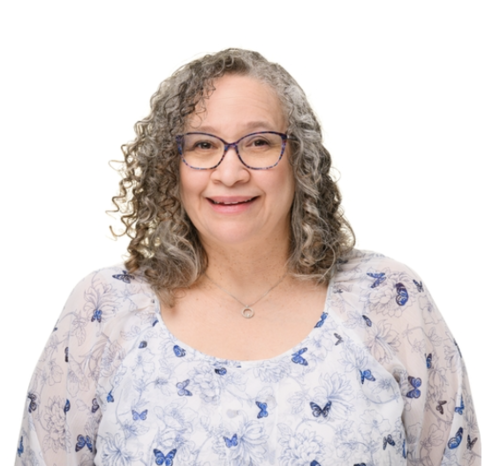
Name: Harriet Johnston
Title: Registered Psychologist
Credentials: MEd, MSc, PhD
Services Offered: Counselling and Assessment
Client Focus: Couples, individuals (teens and adults for therapy), assessment (starting at 6+)
Types of therapy: Solution Focused Therapy, Couples Therapy
How would you explain your style and approach to therapy when working with clients?
I practice solution-focused brief therapy to support couples and individuals of any age in identifying the resources they have in themselves to build their desired future outcomes. Solution-focused brief therapy is an evidence-based approach to supporting positive client change. In the session, once we work through questions to identify your preferred future, I will help you to identify the strengths and resources you possess in service of this preferred future and take you through a therapeutic conversation in which you will imagine what it will be like in your life where your preferred future exists. This approach is suitable no matter your current problem, no matter what your neuro-diversity, and no matter how you identify yourself. You are seen as the expert in your life and my job is to be your ally through this process, focusing the conversation through your language without judgement. One key distinction in solution-focused therapy from other approaches is that discussion of the problem is not a focus of our therapeutic conversation. If problems work their way into the conversation, I will acknowledge and reframe problem talk that may occur within the session to highlight your capacity for coping and resilience despite these challenges and explore how these qualities can also be used in service of your preferred future. This therapeutic conversation can happen in just a single session but can extend over multiple sessions entirely based on your experience of the effectiveness of the conversation in promoting positive change in your life.
What is a psychoeducational assessment?
A psychoeducational assessment can identify learning challenges in students of all ages, from young children to adults.
Learning disabilities, ADHD, ASD, anxiety, or depression often stay hidden and impact a student’s performance and behaviour both in and outside of the classroom. Gifted students may find themselves under stimulated and once identified, can receive enriched programming.
A psychoeducational assessment identifies areas of strength and weakness in a student’s learning profile and provides a deeper understanding of their educational abilities. It can also identify Gifted Abilities, Learning Disabilities, Attention Deficit Hyperactivity Disorder (ADHD), Autism Spectrum Disorder (ASD), Intellectual Disabilities, reading (dyslexia), writing (dysgraphia) and mathematic (dyscalculia) challenges and other mental health issues that can interfere with learning.
We pride ourselves on providing comprehensive assessment services. Myself, and my team of experienced psychologists utilize state-of-the-art assessment tools, provide clear written reports, and ensure our clients have a positive experience during the whole process.
Our reports act as a road map for adult learners, parents and/or teachers, providing clear ideas on learning strategies, social/emotional supports, academic accommodations, and assistive technology needed to help the student thrive.
What training and expertise do you bring to your sessions?
I have been a registered psychologist working in Calgary for more than 27 years. My schooling started with an applied school and community psychology program (MEd University of Calgary ‘95) and later research-based neuropsychology focus (MSc University of Edinburgh ‘08; PhD University of St. Andrews ‘13). I started my career in solution focused therapy within a residential mental health setting for youth and drop-in clinics in Calgary in the late 90s. I completed a postdoctoral research fellowship in School Neuropsychology at University of Calgary in 2013. For most of my career, my main focus has been on psychoeducational and psychological assessment of children, youth, and young adults in the public school board and in private practice. Most recently I’ve turned my focus to supervision for graduate students and psychologists in training in assessment and intervention. As I move into the next stage of my career, I’ve updated my training in Solution-Focused Brief Therapy to compliment my expertise in assessment as I return to clinical services with Eckert Centre at this stage of my career.
Outside of your therapist role, what are some ways in which you express your uniqueness as a person?
I have been happily married for over 30 years and I live with my husband, 2 young adult sons, and 2 dogs.
I was lucky enough to stumble on pickleball in 2018 and since then I’ve been an avid pickleball player. I’ve been a Level 1 IPTPA certified pickleball instructor since 2023 and I was most honoured to teach pickleball to a group of Special Olympic Athletes last year.
As a person of colour and therapist, I resonate with this quote from Maya Angelou
“I've learned that people will forget what you said, people will forget what you did, but people will never forget how you made them feel.”
